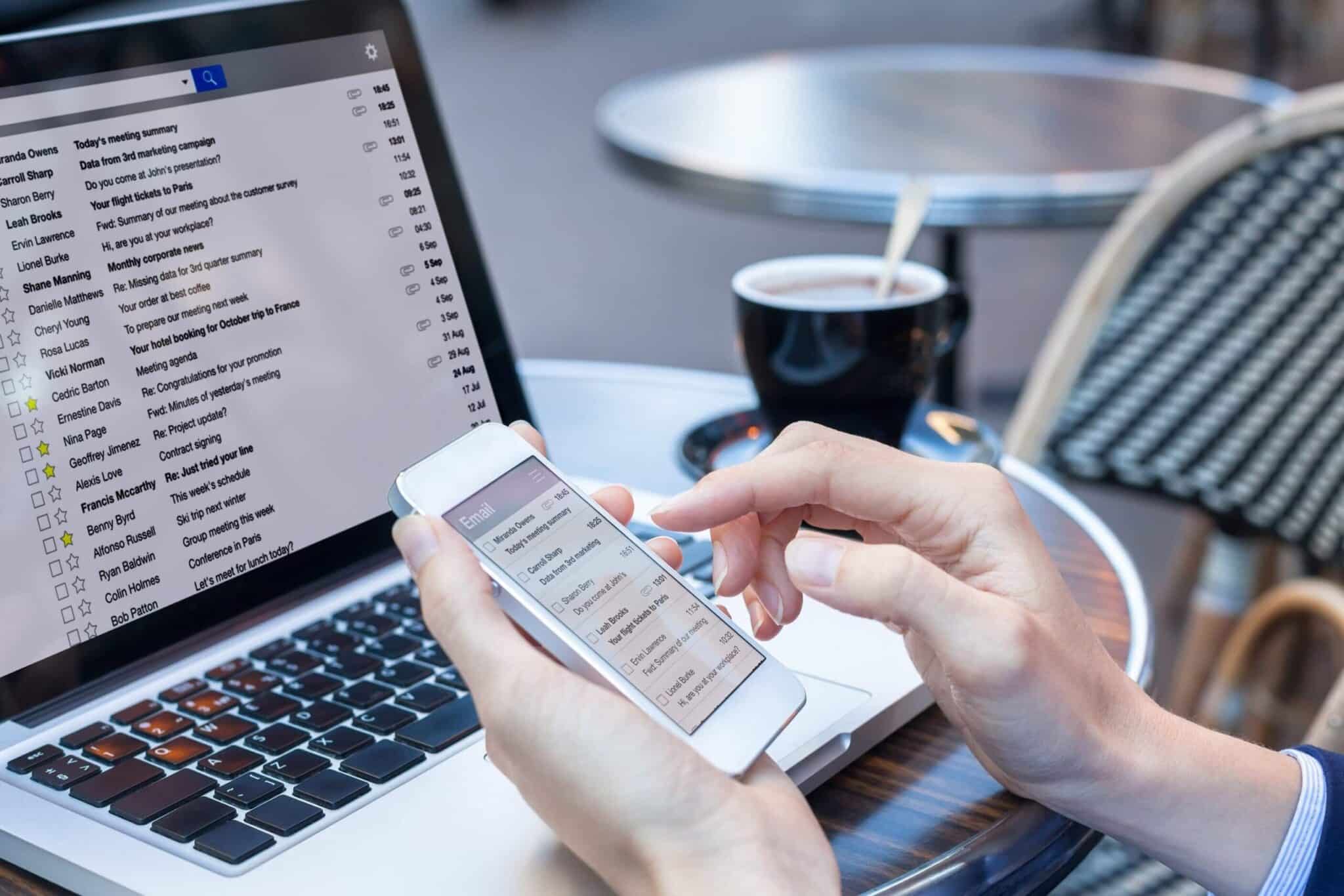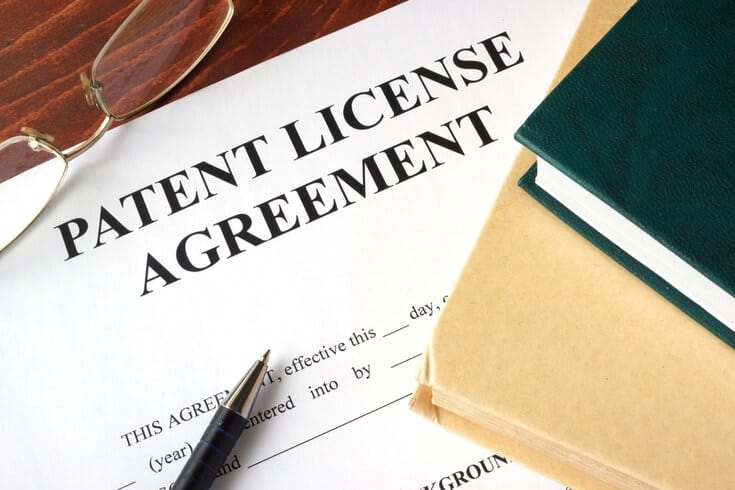'Three Reasons Why Monitoring Company Employee Emails Does Not Infringe on Privacy'

Email is widely used for internal and external communication in many companies. If a company were to monitor and investigate the content of employee emails, would this constitute an invasion of privacy?
For business owners, due to the increasing awareness of corporate compliance, it seems that monitoring and investigating employee emails may be an important concern.
To conclude, it is interpreted that a company monitoring and investigating its employees’ emails is not illegal for the three reasons explained in this article. However, caution is needed as not all types of monitoring and investigation are permissible.
In this article, we will explain to business owners what types of monitoring and investigation are permissible, introducing actual court cases as examples.
Related article: A thorough explanation of the right to privacy. What are the three requirements for infringement?
Reasons Why a Company is Allowed to Monitor and Investigate Employee Emails
Reason 1: To Maintain Corporate Order
Companies have the right to maintain order as they must act as an organization for management purposes. To protect this order, it is necessary to prevent employees from “mis-sending emails” and to stop infections caused by viruses.
Especially when an employee’s “mis-sent email” occurs, there is also a risk of corporate secrets being leaked. Therefore, it is considered that the company has the right to check the business emails of employees in order to maintain corporate order.
Reason 2: Because Company Facilities are Being Used
Computers used by employees at the company and mobile phones lent by the company are mostly company property and facilities. Even if employees bring their own laptops to work, they should be sending and receiving emails through some company facilities, such as communication lines and email servers.
In other words, the company’s facilities include computers and mobile phones used by employees for business, as well as the system itself. As long as it is a company facility, it is possible to consider that the company has the right to check the email usage status of employees.
Reason 3: Because There is a Duty to Devote to Duties
The “duty to devote to duties” refers to the “obligation of workers to devote themselves to their duties in accordance with the instructions and orders of the employer during working hours”. The National Public Service Act and the Local Public Service Act, which apply to public servants, stipulate the duty to devote to duties in the text.
On the other hand, there is no law that explicitly states the duty to devote to duties for private sector workers. However, it is considered that the duty to devote to duties naturally exists as an obligation associated with the employment contract.
The company can investigate whether the worker is working sincerely, in other words, whether they are fulfilling their duty to devote to duties, and whether they are keeping their confidentiality obligations and not leaking information, and checking emails can be considered part of this.
So, can a company or boss view employee emails without limit and without the person’s permission?
Related article: Is the publication of personal information on the Internet a violation of privacy?
【Case Study 1】Company Employee Email Monitoring and Sexual Harassment

A case is introduced where a company employee claimed that the company had invaded her privacy by monitoring her personal emails without her consent, and demanded compensation for damages. The conclusion was that it was not an invasion of privacy.
Case Overview
The plaintiff, female employee X1, interpreted an email from her direct supervisor, defendant Y (division manager), saying “I would like you to take some time to tell me about the problems in our division,” as an invitation to dine out, and consulted her husband X2.
X1, who was strongly resentful, tried to send an email to X2 using the company’s internal computer network system, saying “He even interferes with the detailed and female-to-female relationships. The challenge is how to work without getting involved. It’s just an invitation to drink,” but accidentally sent it to Y.
Y, learning that X1 and X2 were planning to accuse him of sexual harassment, asked the company’s IT department to start monitoring X1’s emails.
After this, X1, X2, and Y had a chance to talk, but it broke down. X1 and X2 sued for damages based on tort, claiming that they had been sexually harassed by Y and that their privacy had been violated by having their private emails read without permission.
On the other hand, Y counter-sued, claiming that the accusation by X1 and X2 that they had been sexually harassed by Y was defamation.
Main Points of Contention
In this case, whether there was sexual harassment by Y and whether the claim by X1 and X2 was defamation were also points of contention, but let’s focus on whether Y’s monitoring of X1’s emails was an invasion of privacy and look at the court’s judgment.
Court’s Judgment
First, the court indicated the following regarding whether private use of employee emails is allowed.
As a worker living a social life, it is of course permissible to use the company’s telephone equipment as a contact point for external communication necessary for daily social life. Furthermore, if it does not hinder the performance of duties at the company and the economic burden on the company is extremely minor, it is socially acceptable to use the company’s telephone equipment for outgoing calls within the necessary and reasonable limits to appropriately respond to these external communications. This should also basically apply to the sending and receiving of private emails using the company’s network system.
Tokyo District Court, December 3, 2001 (Heisei 13)
In other words, it is permissible for employees to use the company’s email system for private use within necessary and reasonable limits.
However, on the other hand, the court indicated the following and judged that the monitoring of employee emails in this case was not an invasion of privacy.
When an employee uses email privately using the company’s internal network system, the range of privacy protection that can be expected is considerably reduced compared to the usual use of telephone equipment, and it should be accepted. If someone who is not in a responsible position to monitor the private use of an employee’s email monitors it, or even if someone in a responsible position monitors it without any reasonable necessity for the job, or if the monitoring is done by personal curiosity, or if the monitoring is done by a method based on personal discretion without disclosing the fact of the monitoring to the internal management department or other internal third parties, it is appropriate to consider the purpose, means, and manner of the monitoring, compare it with the disadvantage caused to the monitored party, and consider it an invasion of privacy rights only when the monitoring exceeds the socially acceptable range.
Same as above
In other words, it was judged that “the monitoring by the defendant did not exceed the socially acceptable range, and the plaintiff should accept this level of monitoring.”
Key Point of the Judgment: Monitoring as a Manager is Possible
In the judgment, the following types of monitoring are considered “monitoring that exceeds the socially acceptable range.”
- When someone who is not in a position to monitor the private use of an employee’s email (not in the management layer) monitors it
- Even if the person in a responsible position monitors it, when there is no reasonable reason to monitor it (when it is monitored out of personal curiosity)
- When the monitoring is done based on personal discretion without disclosing the fact of the monitoring to a third party
In this case, regarding 1 above, the defendant was the division manager and had asked the responsible department to continue monitoring from the middle, so it was not entirely personal monitoring.
At this company, at that time, the prohibition of private use of email was not thoroughly enforced, and the company did not inform employees in advance that the company might view it.
Even in such a case, if it does not exceed the socially acceptable range, it is permissible for the company or supervisor to monitor the employee’s email.
【Case Study ②】Investigation of Employee Emails Suspected of Defamation within the Company

This article explains a case where a company conducted an inquiry with an employee suspected of sending defamatory emails within the company, which were discovered during the investigation of the incident.
In this case, the court did not recognize any infringement of personal rights such as honor and privacy in relation to the investigation. Also, the issues of “maintaining corporate order” and “duty of dedication to work” were raised.
Case Overview
Several emails defaming Employee A were sent to the head of the management department. The company, upon receiving a complaint from A, discovered that the emails were sent from a computer shared by the sales department to A’s internal email address using a free email service.
Due to the limited number of people who knew the circumstances described in the email, Plaintiff X, who had a motive to prevent A and female employee B from getting close, was suspected, and the first round of inquiry was conducted.
As the plaintiff denied sending the emails, the company investigated about a year’s worth of email communication records related to the plaintiff on the file server it owns and manages, but could not find any evidence indicating the plaintiff’s involvement in the defamatory emails.
However, during the investigation, it became clear that X had sent numerous personal emails unrelated to work.
Subsequently, the company conducted two rounds of inquiry with X regarding the defamatory emails and personal emails, and later reprimanded X (requiring the submission of a written apology) on the grounds that the personal emails violated the employment rules.
At this point, X claimed that the manner of the inquiry infringed on his personal rights such as honor, and that the company’s investigation of the emails, allowing others to view them, and not returning them to him, violated his ownership and privacy rights regarding personal information in his private life, and demanded compensation for damages.
Main Points of Contention
In this case, whether the inquiry constituted an infringement of personal rights was a point of contention. However, let’s focus on the court’s judgment on whether an email investigation to solve internal problems constitutes an infringement of privacy rights.
Court’s Judgment
The court made the following statement regarding the email investigation, ruling that the email investigation in this case did not constitute an infringement of privacy rights.
There were reasonable grounds to suspect that the plaintiff was the sender of the defamatory emails, and although the plaintiff denied being the sender, he could not dispel the suspicion. Therefore, further investigation was necessary. Given that the incident involved the use of email within the company, there was a possibility that information leading to the identification of the perpetrator was written in the plaintiff’s email file, and it was necessary to check its contents. Also, once the existence of a large number of personal emails unrelated to work became clear, it was necessary to conduct a new investigation regarding the plaintiff. Whether an email is a personal one unrelated to work cannot be accurately determined from its subject alone, and it is necessary to judge from its content. Neither of these investigations can be said to be illegal acts that infringe on the plaintiff’s mental freedom beyond the socially acceptable limit.
Tokyo District Court, February 26, 2002 (Heisei 14)
Although there are slight differences in wording, it can be said that this case also judges from the perspective of whether it “exceeds the socially acceptable limit” (whether it deviates from the range that is reasonable in social norms).
Key Points of the Judgment: Duty of Dedication to Work and Maintenance of Corporate Order
The court also made the following statement regarding the duty of dedication to work and the maintenance of corporate order.
Personal emails, by their nature, cause the sender to violate the duty of dedication to work by thinking about and creating the document and sending it, and also constitute a violation of corporate order by using the company’s facilities for personal use. Of course, they also hinder the recipient’s work by making them read personal emails. Moreover, in this case, there were a considerable number of emails that asked the recipient for a reply, and in response, a considerable number of personal emails were actually sent as replies. This not only violates the sender’s duty of dedication to work and corporate order by thinking about and creating the document and sending it, but also makes the recipient violate the duty of dedication to work and corporate order by using the company’s facilities for personal use.
Same as above
In other words, it can be said that if a violation of the duty of dedication to work (is reasonably suspected), the necessity and appropriateness of conducting an email investigation like this one for the sake of maintaining corporate order is recognized.
However, on the other hand, even if it does not constitute an infringement of privacy rights, depending on the method, etc., it may infringe on other personal rights such as honor, so caution is necessary.
Related article: How much is the compensation for invasion of privacy? A lawyer explains the practical market price
Clarifying Work Rules Regarding Employee Emails
It is crucial for companies to clearly define and share rules regarding employee emails in advance to ensure that email checks are conducted appropriately.
Moreover, the rules about employee emails should apply to all employees, so it would be better to establish them in the form of work rules.
If the rules about employee emails are clearly defined as work rules, the possibility of conflicts with employees will be reduced even if you investigate employee emails for reasons such as “whether they are violating the work rules”.
Conclusion: Consult a Lawyer if You Have Concerns About Employee Email Monitoring
There may be companies that allow a certain degree of personal email use for business purposes. However, this should not be exceeded.
Furthermore, a company cannot unconditionally monitor or investigate emails. This is only permitted for the maintenance of corporate order, the obligation to concentrate on duties, and for the sake of company facilities.
Determining whether the monitoring of employee emails infringes on privacy rights, and creating or revising work rules, requires highly specialized knowledge. If you are struggling with situation assessment or the creation or revision of work rules, do not hesitate to consult a lawyer.
Introduction to Our Firm’s Measures
Monolith Law Office is a legal office with high expertise in both IT, particularly the Internet, and law. We provide support in creating manuals for a broad range of employees, including part-time and contract workers, as well as guidelines regarding the use of the Internet and SNS by employees. We believe it is crucial to prevent legal failures and to minimize the burden on your core staff as much as possible. Details are provided below.





















